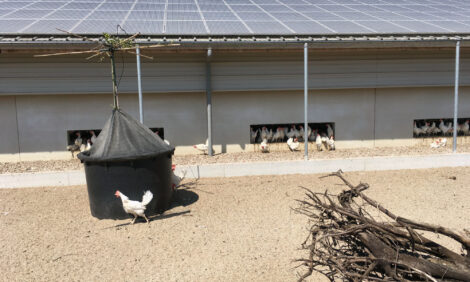



Government Axes Some Defra Bodies
UK - As part of the Government's commitment to radically increase the transparency and accountability of all public services, the Minister for the Cabinet Office, Francis Maude, has summarised plans to substantially reform a large number of public bodies and also announced further proposals.Defra, like all other departments, has been examining its network of arm's-length bodies (ALBs) to increase accountability, improve efficiency and reduce their number and cost. Defra had previously announced proposals regarding the future of more than 30 bodies in the summer, including the Commission for Rural Communities and the Sustainable Development Commission. Decisions on the rest of Defra's ALBs have been published.
The intention of Ministers is to simplify the ALB landscape, both for the department and its customers, and increase transparency and accountability. This includes restructuring the provision of scientific advice and a number of existing advisory bodies will be replaced as new arrangements are made.
Environment Secretary Caroline Spelman said: "Defra's current delivery network contains over 90 arm's-length bodies and there have been difficult decisions to make in order to achieve the best value for money in this challenging economic climate. The announcement confirms that the number of Defra's arm's length bodies will reduce by over half.
"But the changes announced today also reflect the government's view that it should only carry out those functions which only government can do, while harnessing the power of civil society and the private sector to help deliver Defra’s objectives."
In reaching the decisions on the future of the department's ALBs, Ministers have been guided by the strategic objectives set out in Defra's Structural Reform Plan which was published on 16 July:
- to support and develop British farming and encourage sustainable food production
- to help to enhance the environment and biodiversity to improve quality of life, and
- to support a strong and sustainable green economy, which is resilient to climate change.
Among the changes announced by Defra are the following organisations that will be re-formed as a committee of experts: Farm Animal Welfare Council (FAWC), National Standing Committee on Farm Animal Genetic Resources and the Veterinary Residues Committee.
The Veterinary Products Committee will be retained on the grounds that it performs a technical function that should remain independent of Government.
The body and functions of Animal Health and Welfare Strategy England Implementation Group and Food from Britain are to be abolished.
The future of the Agriculture and Horticulture Development Board (AHDB) is under consideration. Debate is to be initiated with the industry about its future, including non-public sector options.









